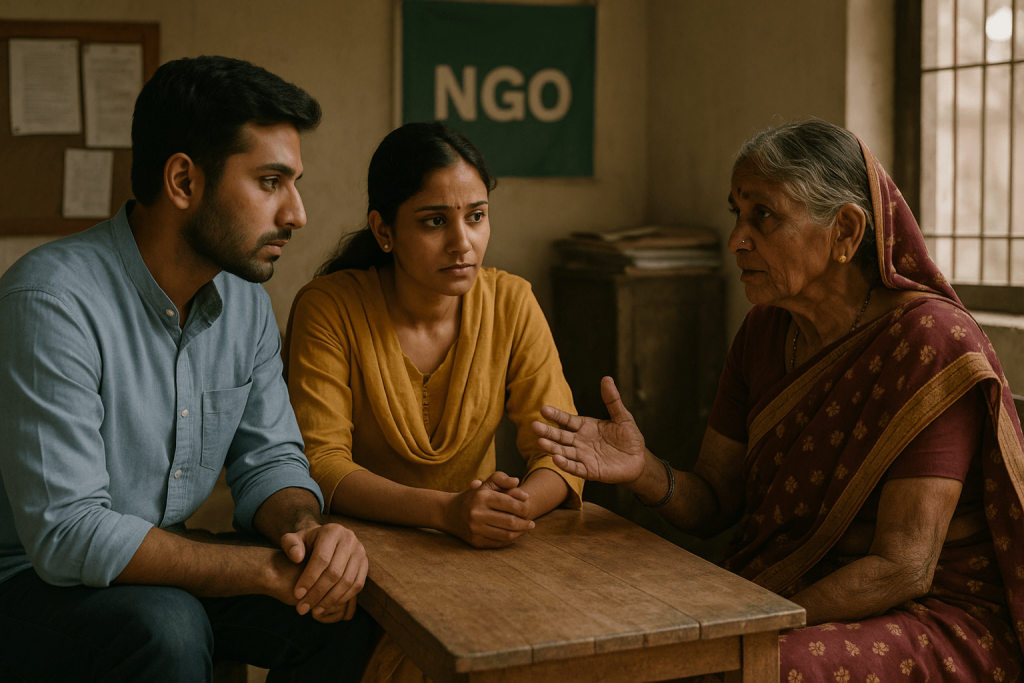It started with the act of helping a 3 year old carry a bucket of water to the shop where her mother ironed clothes. I was on my way to the grocery store when I noticed her walking uncomfortably.Without hesitating, I took the bucket from her, and walked to her mother and said,“See how small her hands are.She can’t lift that heavy bucket.Don’t be so hard on your kids.” I was in grade 6 then. I grew up the same way as I always loved people around me.I established affectionate relationships with our domestic help too, calling them ‘bua’ or ‘dadi’. I clearly remember playing with their kids and enjoying without any discrimination.
I had a friendbelonging to one of the richest families of my town. As I started visiting her I got to know that they had a domestic help, Poonamwho was very young, and no one knewwhere she came from. I also noticedthat my friend and her mother were violent with her. I was so uncomfortable and disturbed that I ended my friendship with her. But that was childhood; now I can relate why things were like that.
I was always told that I wasthe daughter of poor parents and was always shown my place of being ignored and was not made a part of any decision making in the family. Amongst my cousins I was treated differently by my relatives. There were continuous comparisonsbetween them and me as if being financially weak was a crime. I developed the notion that people come up to you and give attention only if you are rich.
Apart from this, I also come from an orthodox family where the gender discrimination wasunderlining which I never noticed.It was evolving organicallyand I was not exposed to terms like “Patriarchy.”
The time I started working on fieldwas when I started to understand the realities. The power dynamicsin our society is based on wealth. I knew a girl fromStd 8th who asked me tough questions like “Why is it that my brother is allowed to work outside the village and I am not?” I could not find a way to reason with her and could only advise her to keep trying and not lose hope.
On another occasion when I visited a village to spread awareness about sanitation, I came across a family where the head of the house (usually a man) was very adamant about not constructing a toilet in the house saying he wouldn’t do it unless he feels the need for it. His wife and his specially-abled daughter, who were sitting there, could not raise their voices inspite of facing problems due to open defecation.
From that moment, I got to thinking that I can’t be the one to treat everyone equally because the society doesn’t approve of that. Incidences like the one in the village added as a catalyst to that thought of mine. I started judging people and stopped engaging much because of the fear of getting judged by the society.
I feel we, as a society are divided in all matter- be it is caste, creed, language, money, gender, and so on. Very few of us press on the need of being united. It is the need of the hour to understand that we, human beings, are inter dependent on each other. It is not about who is more important, rather it is about the dignity of a person who is living and contributing others lives. A similar theory on Oneness was also stated by Gandhi in his idea of “Trusteeship” where people build relationships on mutual gains and trust. I strive for that kind of development which leads to create a society where there will be “Dignity of People” from every stratum and people will respect each other and move towards co-creating rather than competing.




